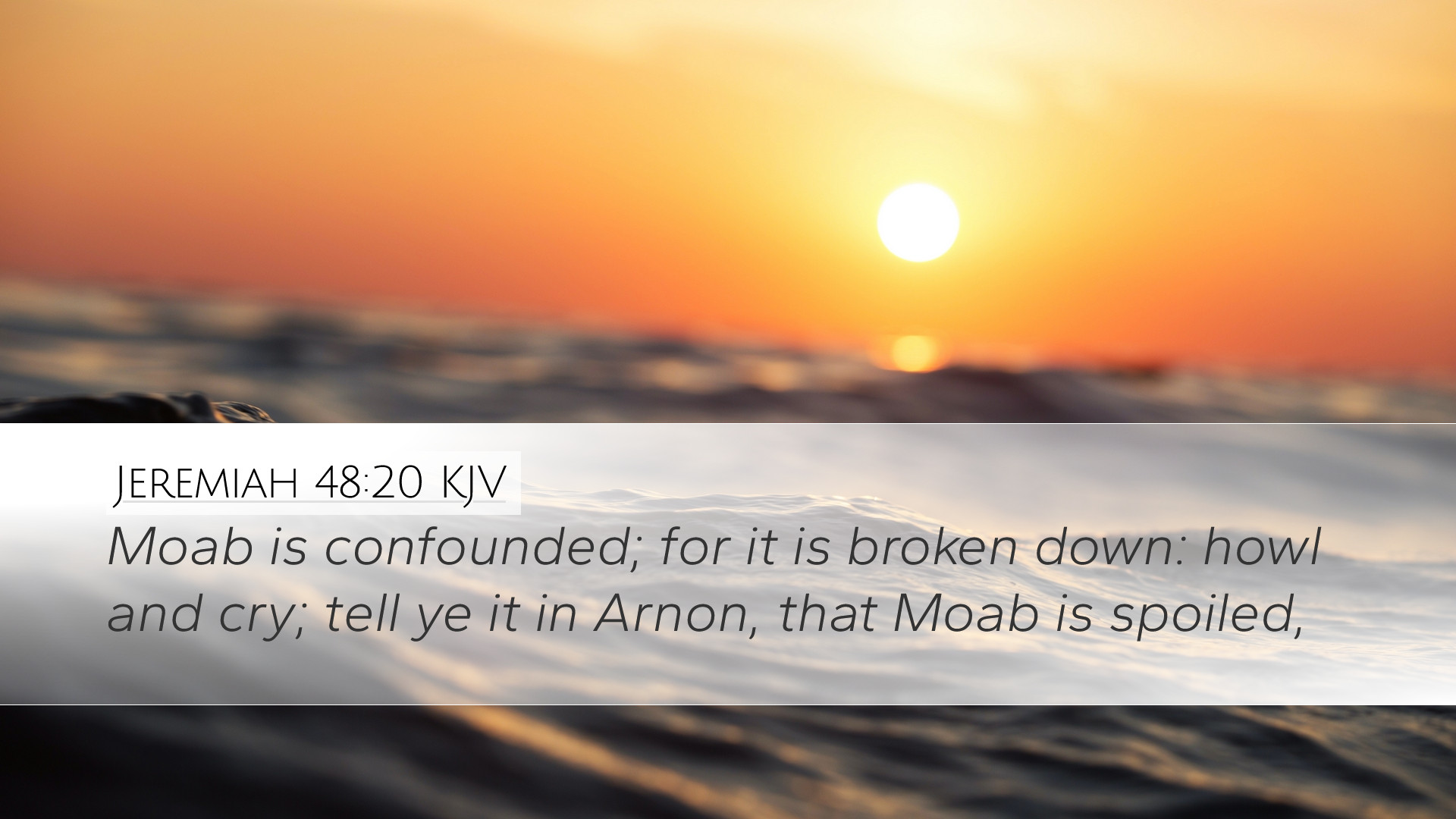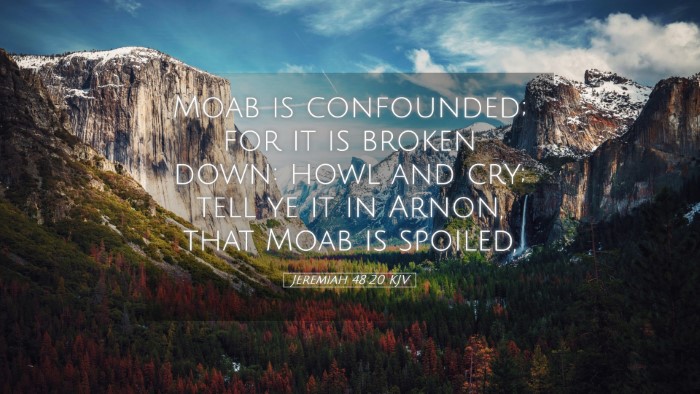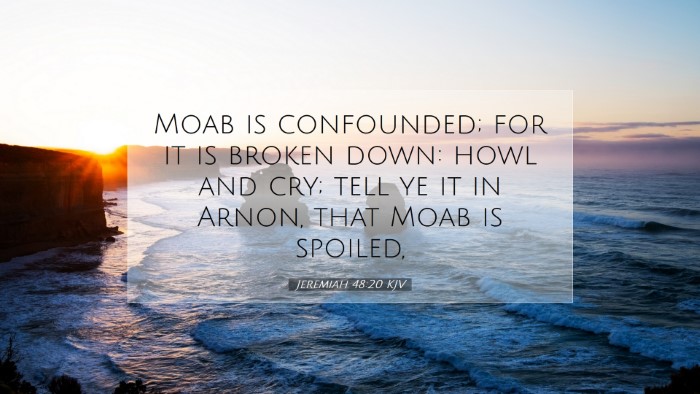Commentary on Jeremiah 48:20
Verse Reference: Jeremiah 48:20 - "Moab is confounded; for it is broken down. howl and cry; tell ye it in Arnon, that Moab is spoiled."
Introduction
The Book of Jeremiah, often referred to as a prophetic work filled with divine warnings and personal lamentations, captures the solemnity of God’s judgment against nations, particularly Moab in this instance. Jeremiah 48:20 marks a pivotal moment wherein the prophet announces the devastation that awaits Moab, providing insights not only into the historical context but also the theological implications of divine judgment.
Historical Context
The prophecy concerning Moab arises from a long-standing enmity between Moab and Israel, stemming back to biblical narratives involving the ancestors of both nations. Moab, descended from Lot, was often a source of contention for the Israelites. In this passage, the backdrop of impending judgment is foretold against Moab due to its pride and idolatry. The words of the prophet encapsulate the overwhelming feeling of despair and desolation that would envelop this nation.
Insights from Matthew Henry
Matthew Henry observes that the words "Moab is confounded" reflect not merely a physical defeat but a profound moral and spiritual collapse. He emphasizes the idea that Moab's distress is a direct result of its rebellion against God. Jeremiah’s directive to “howl and cry” serves as both a lament and proclamation of the severity of Moab's situation. It signifies a necessary recognition of their impending downfall, essentially calling on the people to acknowledge their sinful state.
Insights from Albert Barnes
Albert Barnes provides a thorough analysis of the term "spoiled," interpreting it as Moab's complete desolation due to the invading forces. He notes that this verse serves as both a warning and a wake-up call not just for Moab but to all surrounding nations. The reference to Arnon, a river that marked the boundary of Moab, symbolizes the extent of devastation that reaches beyond just geography—it encapsulates the entirety of Moab's cultural and spiritual identity. Barnes underscores the seriousness of divine wrath, serving to enhance the urgency for repentance amongst those who stray from God's commands.
Insights from Adam Clarke
Adam Clarke adds a unique angle by highlighting the psychological aspect of the prophecy. He elaborates that the imagery of "howl and cry" not only stimulates an emotional response but also invites Moab to reflect on their actions and the consequences they face. Clarke warns of the dangers of national pride and the allure of idolatry that led to Moab's ruin. He reflects on the sobering reality that such judgments were not merely historical occurrences, but a timeless warning rooted in the character of God as just and holy.
Theological Implications
The implications of Jeremiah 48:20 extend beyond its immediate context, revealing profound truths about God's nature and His dealings with nations. There are crucial themes that emerge from this text:
- The Certainty of God's Judgment: God's judgment is inevitable for those who oppose Him. Moab’s downfall underscores the principle that nations and individuals alike are accountable for their actions.
- The Call to Repentance: The lamentation and proclamation serve as a call to self-examination for not only Moab but all nations. It is a reminder that ignoring divine warnings invites calamity.
- The Role of Prophecy: Jeremiah's pronouncement serves as a precursor to understanding the role of prophets in calling nations to repentance. Prophecy acts as both forewarning and an opportunity for reformation.
Applications for Today
For pastors, students, and theologians, Jeremiah 48:20 offers numerous applications that speak to contemporary society:
- Recognition of Sin: Just as Moab was called to recognize its iniquity, modern believers are called to introspection regarding their moral and spiritual state.
- The Importance of Prayer and Intercession: The ‘howl and cry’ can be seen as an emotional appeal for prayer and intercession, highlighting the need for collective calls for mercy in the face of judgment.
- The Urgency of the Gospel: Understanding the gravity of God’s justice compels believers to share the gospel diligently, emphasizing the need for repentance in the face of a holy God.
Conclusion
Jeremiah 48:20 encapsulates a deep narrative of warning, sorrow, and, ultimately, a call to repentance. The reflections of Henry, Barnes, and Clarke together provide a rich tapestry that unites historical context, theological significance, and practical application. As we study this verse, we are reminded that God's heart is always towards mercy, but His justice cannot be ignored. The call for Moab to howl and cry echoes through the ages, urging all of humanity to a place of reflection, repentance, and restoration.


